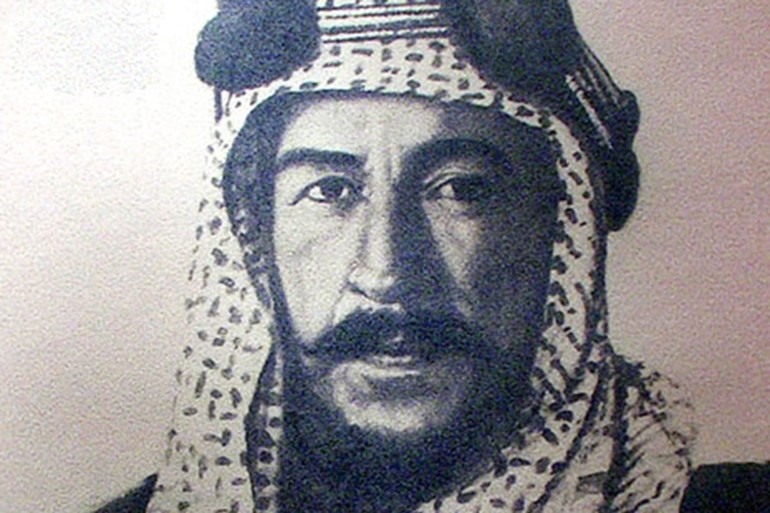The announcement of the Kuwaiti Emiri Court - today, Tuesday - the death of the Emir of Kuwait, Sheikh Sabah Al-Ahmad Al-Jaber Al-Sabah, at the age of 91, raised the question of many outside Kuwait about the mechanism for the transfer of government and who will succeed him.
Before answering the question, it is important to point out that the system of government in Kuwait is characterized by its combination of the parliamentary and presidential systems, as the Emir of the country presides over the state through the constitution, while the National Assembly is entrusted with the task of legislating laws, and the latter consists of 50 members elected every 4 years by popular, free and direct vote. .
The regime in Kuwait derives its legitimacy from the constitution, and Article 4 of it shows the mechanism for inheriting power within the ruling family from the descendants of the late Emir Sheikh Mubarak Al-Sabah, known as "Mubarak the Great".
The constitution also defines the conditions for the emir to exercise his constitutional powers, which are represented in not losing one of the conditions that must be met by him, namely: that he be a sane Muslim and the legitimate son of Muslim parents, as well as not losing the healthy ability to exercise his powers as a prince.
If he loses one of these conditions or loses the health capacity to exercise his powers, it is necessary for the Council of Ministers - "after verification of this" - to present the matter to the National Assembly immediately for consideration in a private secret session.
In the event that the position of the Emir becomes vacant, then the Crown Prince shall be called an Emir, but if the Crown Prince has not yet been appointed, the powers of the Emir in the Presidency of the State are assigned to the Council of Ministers and the appointment of the new Emir after the approval of the National Assembly, provided that this is done within 8 days.
Kuwaiti constitutional expert, Dr. Muhammad Al-Faili, explained that the Emir appoints the Crown Prince within a year at most from his assumption of power, and his appointment shall be by an Emiri order based on the Amir's recommendation and the pledge of allegiance by the National Assembly, which takes place in a special session, with the approval of the majority of the members who make up the Council.
The Kuwaiti constitution stipulates that the transfer of power be limited to the descendants of the late Emir Mubarak Al-Sabah (Al-Jazeera)
Parliament Recommendation
In the event that the nominee of the Emir does not win the parliamentary majority, then the Emir recommends three people to the crown prince from Mubarak Al-Sabah’s offspring, for one of them to pledge allegiance to the Crown Prince, and an Emiri order is issued for it, which means that the choice of the Crown Prince in Kuwait is shared by the Emir who nominates, And Parliament that recommends.
Al-Faily clarifies - in his speech to Al-Jazeera Net - that according to the usual course, the Crown Prince will be called an emir in the event that the emirate seat becomes vacant.
The exception is if the position of the Emir becomes vacant and there is no crown prince, then in this case the Council of Ministers approves one of the sons from the descendants of Sheikh Mubarak Al-Sabah, and Parliament ratifies him, and if he does not obtain the confidence of Parliament, it is necessary to recommend three, so that the National Assembly chooses one of them, provided that it takes place. That in 8 days.
In the event that the Crown Prince loses one of the conditions that must be met by him or loses the health capacity to exercise his powers, the Emir refers the matter to the Council of Ministers, and after verification of this, the Council of Ministers submits the matter to the National Assembly immediately for consideration in a private secret session.
If the National Assembly is categorically proven to lose the condition or capacity, it shall decide by the majority of the members to transfer the exercise of the powers of the crown prince on a temporary basis, or to transfer the mandate of the crown permanently to others.
For his part, Professor of Constitutional Law at Kuwait University, Fawaz Al-Jadae, affirmed that all the crown princes who were chosen won the parliamentary majority, and it has never happened in the history of Kuwait that one of them was rejected.
Al-Jadee refers - in his speech to Al-Jazeera Net - to the precedent that occurred during the calling of Sheikh Saad Al-Abdullah Al-Sabah as Emir of the country after the death of the late Emir Sheikh Jaber Al-Ahmad Al-Sabah.
As a result of the health problem he suffered at the time, and with which the health capacity required to be present in the Emir became in doubt, the Council of Ministers presented the matter to the National Assembly, so that the late Father Emir Sheikh Saad al-Abdullah was removed unanimously, which resulted in the vacancy of the seats of the Emir and the Crown Prince.
The Council of Ministers assumed constitutional powers at that time, nominated Sheikh Sabah Al-Ahmad as Emir, and won the approval of the National Assembly, becoming the first ruler since the constitution was drawn up who was not a crown prince.
And Sheikh Mubarak Al-Kabeer had established a custom in the ruling family whereby the power in Kuwait would alternate between the descendants of his two sons, Sheikh Jaber bin Mubarak and Sheikh Salem bin Mubarak, as the emirate and the crown prince were traded between the two branches respectively, but Prince Sheikh Sabah Al-Ahmad chose Sheikh Nawaf Al-Ahmad as crown prince - Both of them are from the Jaber branch - and their approval by the National Assembly, set another precedent in the governance mechanism.

